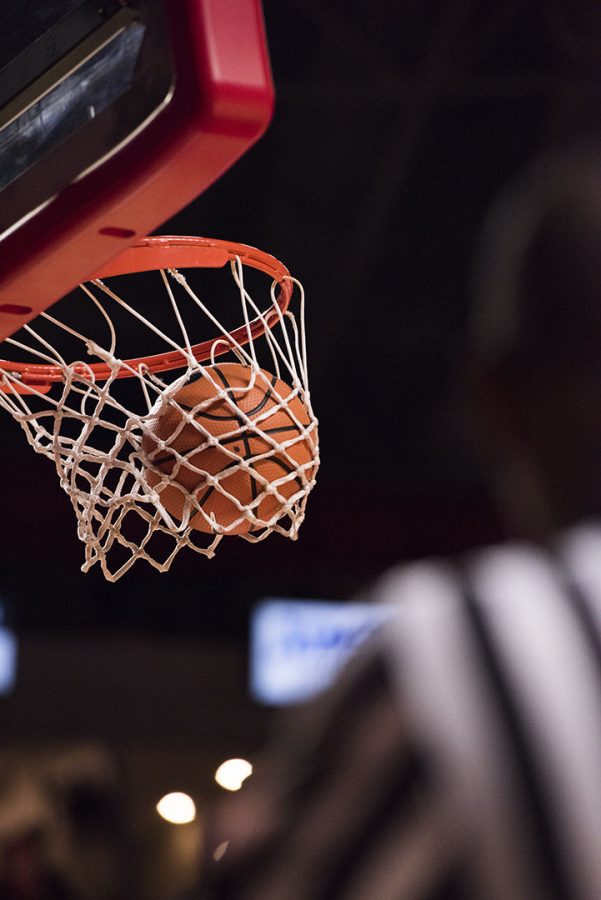Quit Stahl-ing: Latest NCAA scandal serves as reason to remove amateurism
March 12, 2019
The big news in college sports this week was Louisiana State’s head basketball coach Will Wade getting caught having a phone conversation in which he allegedly discussed paying players to come to LSU.
The baby-boomer generation of sportswriters and fans clutched their pearls and complained bitterly about the sanctity of the amateur game and how they couldn’t believe a coach would stoop so low.
I don’t care, and neither should you. It might be shocking, but there’s not that much value in amateur sports. If players want to make it to a professional league, they don’t have much of an option outside of playing college sports. Otherwise, they wouldn’t be worried about going to school.
“Sometimes, believe it or not, it’s not the most important thing,” WKU head coach Rick Stansbury said on March 5. “Having a degree is not the most important thing for young guys who want to play basketball.”
So what is? Seems like money is at least a plausible answer.
When I was a freshman at WKU, back in the dark ages when the football team was outfitted by Russell Athletic and frequently won games, I walked through the WKU Store and noticed all of the number 14 jerseys for sale. They didn’t have current Dallas Cowboys quarterback Mike White’s name on the back, but I’m sure it was no coincidence his number was on the jerseys that were sold during his monster season.
This basketball season, the store is selling number 1 jerseys for $74.99. There’s no way Lamonte Bearden or White have ever seen a penny of those sales.
It’s not like the players aren’t already getting their money, especially in the Southeastern Conference, which houses LSU. Read some of Steven Godfrey’s work for SB Nation — the NCAA’s restriction on players receiving anything more than an education has led to a huge black market for top talent.
There’s a certain national college basketball writer who seems convinced Rick Stansbury is paying players at WKU, as well. I can’t say whether or not this is true, although I’ve never seen any evidence that would convince me it is.
If it was, it would certainly be newsworthy. But I wouldn’t care. You can’t convince me players like Charles Bassey, who are only in college due to the NBA’s asinine rule that prohibits players from going pro right after high school, shouldn’t be paid for their labor.
What if Bassey was to get hurt? I’m sure he would see his education from a directional school in a state that seemingly doesn’t care about education as a great consolation prize for missing out on millions of NBA dollars.
Look at Zion Williamson. After the infamous shoe blowout against North Carolina nearly three weeks ago, he hasn’t played a single minute.
Maybe it’s due to his injury, but if Williamson is smart, he’ll never play another minute of basketball for free.
The risk-versus-reward for players like Williamson and Bassey is just not worth it.
The NCAA is a bunch of kindergarten cops anyway. The recent scandals involving North Carolina basketball, which got away largely unscathed after putting players in fake classes, and Missouri, where a tutor took tests for athletes, were fairly similar except for one thing: cooperation.
Missouri fully cooperated with the organization and got absolutely crushed with sanctions, while UNC feigned innocence and survived. There’s no reason for schools to do anything besides pretend to comply with the rules.
“Yes, we’ve got these very serious issues which require serious change and they erode people’s belief in the integrity of all college sports,” NCAA President Mark Emmert said in a CBS Sports article in March 2018. “That’s a very serious problem and that’s got to be addressed and we’re doing that right now and I’m really optimistic that before basketball season next year we’re going to have really meaningful change that makes this circumstance, if not completely go away, dramatically better than the problems that exist today.”
Sure.
It’s not like the NCAA and its schools couldn’t afford to pay players. The NCAA earned more than a billion dollars in 2017 alone.
Easy to make money when you aren’t paying for the labor, I guess. Players can’t even sign their own shoe deals due to NCAA rules, so Williamson can’t use his own name to sell an Air Zion sneaker that might not blow up in the middle of a game.
So, you’ll have to forgive me if I don’t get too riled up about a coach who makes $2.5 million per season trying to spread some of the wealth around to athletes who are supposed to play for free.
Everyone, including me, is making money off of college sports. Why are the athletes any different?
Sports Editor Matt Stahl can be reached at 270-745-6291 and [email protected]. Follow him on Twitter @mattstahl97.















![Students cheer for Senator at Large Jaden Marshall after being announced as the Intercultural Student Engagement Center Senator for the 24th Senate on Wednesday, April 17 in the Senate Chamber in DSU. Ive done everything in my power, Ive said it 100 times, to be for the students, Marshall said. So, not only to win, but to hear that reaction for me by the other students is just something that shows people actually care about me [and] really support me.](https://wkuherald.com/wp-content/uploads/2024/04/jadenmarshall-1200x844.jpg)









